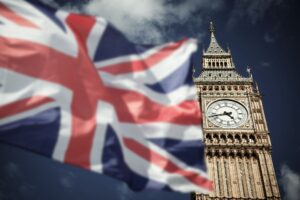The UK government have created a new programme that could see over 300,000 receive better insulation.
Last week the topic of helping people save money on their energy bills ahead of winter was once again brought into the spotlight. On 14th September the government launched an insulation scheme worth £1bn to help upgrade families homes that are in lower council tax bands.
People who live in poorly insulated homes will receive vital upgrades such as roof, loft, or cavity wall insulation – which could slash annual energy bills by around £300 to £400.
Although the scheme has been designed to provide support for individuals on the lowest incomes, it isn’t just limited to this group unlike previous government funded schemes. People eligible for support under the Great British Insulation Scheme include families in council tax bands A-D in England, A-E in Scotland, and Wales, with an Energy Performance Certificate (EPC) rating of D or below.
‘We are determined to help families keep their homes warm through the winter months and save on their energy costs,’ Claire Coutinho, energy security secretary said. ‘Our Great British Insulation Scheme will help hundreds of thousands of people, including some of the most vulnerable in society, get the upgrades their homes need, while cutting their energy bills.’
The new scheme will run alongside the existing Energy Company Obligation (ECO) programme, which offers free home energy efficiency improvements, such as insulation, heat pumps and solar panels to families on low incomes.
In addition, the new project, which is being delivered through the Great British Insulation Scheme, will assist with building on the government’s progress in improving energy efficiency in the country’s homes – in 2010 a mere 14% of homes had an EPC rating on C or above, compared to 47% in 2022.
However, previous energy programmes that have been set up to help struggling households have fallen through.
A scheme that was created to help people who missed out on last winter’s £400 energy bill subsidy was a ‘staggering failure’, according to MP Angus MacNeil. The government said it had spent more than £50m supporting 130,000 households without a domestic energy supplier.
Families who live off the grid, on boats and in trailers, failed to receive direct government support due to not having an energy provider. Although authorities tried to come up with a solution to this – an Alternative Funding scheme was established that was also made available to care homes – only 141,000 bill-payers managed to apply for and receive the subsidy before the scheme closed on 31st May.
Image: KWON JUNHO
Nottingham University Hospitals set to install lashings of energy-saving upgrades


















Leave a Reply